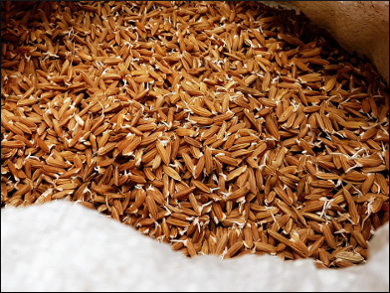Porous carbon materials can be useful for, e.g., energy storage, catalysis, or adsorption and separation. This is due to their large specific surface areas. Their synthesis, however, often needs multiple steps and relatively large amounts of corrosive chemicals such as KOH or HF.
Yeru Liang, Yingliang Liu, and colleagues, South China Agricultural University, Guangzhou, have developed a simple synthesis of highly porous carbon from rice husks, a sustainable resource that would otherwise be considered waste. The team powdered the rice husks and mixed them with polytetrafluoroethylene (PTFE) powder. The mixture was then carbonized at 900 °C to give the desired product.
During the carbonization process, the PTFE powder generates HF in situ. This, in turn, can etch out naturally occurring nanosilica particles in the rice husks. This process leads to the formation of pores in the carbonized material and to a large surface area. It avoids the need for a separate silica template-removal step and for the use of HF in pure form. The researchers tested the synthesized highly porous carbon in a supercapacitor for energy storage and found that the material provides a large capacitance and a good rate performance.
- Facile Synthesis of Highly Porous Carbon from Rice Husk,
Yeru Liang, Chen Yang, Hanwu Dong, Wenqi Li, Hang Hu, Yong Xiao, Mingtao Zheng, Yingliang Liu,
ACS Sustainable Chem. Eng. 2017.
DOI: 10.1021/acssuschemeng.7b01315

![Synthesis of [c2]Daisy Chains via Mechanochemistry](https://www.chemistryviews.org/wp-content/uploads/2025/04/202504_RotaxanesWithSolidStateMechanochemistry-125x94.png)

